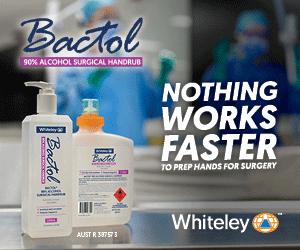The importance of nurses in providing end-of-life care for Māori was shared at a recent Mary Potter Hospice symposium, Whetū i te Rangi (stars in the sky), held in Wellington in May.
Tairāwhiti palliative care nurse liaison Linda Hauraki said she looked after whānau from Gisborne to Potaka – about 200km apart – in the isolated East Cape region, where much of the care was led by nurses as there were few GPs. She cared for anything up to 13 families at a time, trying to lighten the load as much as possible for people facing the end of their lives.
“I just go in and ask: ‘How can I help to make life a bit more tolerable for you, day by day?”, Hauraki told Kai Tiaki Nursing New Zealand. “I’ll say to them: ‘You may be dying but you’re not dying today’.”
“I just go in and ask: ‘How can I help to make life a bit more tolerable for you, day by day?'”
—Palliative care nurse Linda Hauraki
Once she had their symptoms and pain under control – she is able to provide certain medications – she tries to “just remain in the background” while coordinating care with the wider health team and family. “People just want to be at home and our goal is to care for them wherever they want to be.”
It was always important for the family to lead the care, she said – although it could be “complicated” with large whānau. “We must let the family lead us and not take control – it’s always the loved ones and whānau at the centre of care.”
Sometimes, if requested, she helps take a person to their marae for the end of their lives, caring for them wherever they need to be. “I’m always mindful of people’s spirituality – I try to practise within what is meaningful to them.
“I wouldn’t stand in the way of the sun streaming in onto the person as they’re lying in bed.”
At the symposium, Hauraki shared a story of a patient diagnosed with three months to live, who moved back to the region to die among his whenua and near his marae. Five years later, he was still alive and being cared for by her team, with his whānau, at home, she said. “He says it’s because we’ve provided such fantastic care.
“Spirituality, culture, they make a huge difference – people feel secure and relaxed.”
Part of her role is also to support and mentor other health-care workers – nurses and kaiāwhina – across the region. “Kaiāwhina have a huge role to play,” Hauraki said, as they often have existing connections with whānau and provide support and monitoring in between her visits. “Kaiāwhina live in the community usually, so people know them and have that trust.”
Mary Potter Hospice health equity manager Vanessa Eldridge (Ngāti Kahungunu, Rongomaiwahine) said the number of Māori dying was forecast to grow over the next 20 years, so it was timely to look at how care could be improved.
Māori tended to prefer to die at home, and hospice care could be provided in homes, but it could be challenging, she said.
With the launch of palliative care framework Mauri Mate last year, and the current focus on health equity, now seemed a good time to focus on the issue, she said.
Eldridge said she was mindful end-of-life care for Māori could involve whānau, alongside community, hospital and hospice care. “So, to connect everything is an important kaupapa.”
“…to connect everything is an important kaupapa.”
—Vanessa Eldridge
National Hauora Coalition clinical director Rawiri McKree Jansen laid down a “strong wero” at the symposium, on the need for more Māori nurses, and to address poverty. “You can’t give good palliative care if someone’s living in a car.”
There was also a panel discussion where kaumātua were interviewed by rangitahi, facilitating an “important knowledge exchange”, she said.
Mary Potter community manager Norma Hickland spoke about her nursing work caring for whānau in Porirua, including support through the lockdown when people were unable to gather for tangi.
The hospice holds a symposium every two years.




